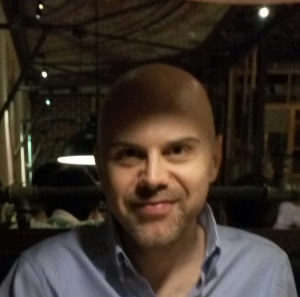International Workshop of Education on Digital Humanities Innovative Application in the Big Data Era 2019 (WEDHIA 2019), as a Satellite of DADH 2019
Organizer: The Teaching Resource Center of the Ministry of Education Talent Cultivation Project for Digital Humanities at National Chengchi University
The international workshop WEDHIA is part of the 4-year Talent Cultivation Project for Digital Humanities (TCDH) sponsored by R.O.C.’s Ministry of Education. The project and the workshop are engaged in the idea of consilience between science and the humanities. While various efforts have been tried before TCDH, the gulf between science and the humanities remain blatant (Slingerland and Collard, 2011). The current ICT and digital revolution can either deepen the gap or, if properly channeled, facilitate consilience. It is the latter the essential goal of TCDH. To do so, TCDH runs a large-scale experiment by encouraging the novel course designs that integrate digital technology into the education of the broadly defined humanities. In the meanwhile, WEDHIA is organized as a platform to connect the international communities of scholars, pragmatists, and policymakers with similar pursuits.
As WEDHIA 2018, WEDHIA 2019 will be held as a satellite event of the International Conference of Digital Archives and Digital Humanities (DADH 2019) . The theme of this year is “Digital Humanities and Digital Economy: Riding the Second Wave of Consilience,” as described below:
While many utopians and skeptics hopes and fears, respectively, the arising of the ICT and the digital revolution, few would argue that the purview of the humanities has extended beyond its conventional boundary and become increasingly interdisciplinary. The emergent cyberspace is not just a reflective duplication of the humanities in the physical space. It has become a standalone dimension where humans “live” and nurtures a new, cyber kind of humanities. Furthermore, Humans’ thoughts, conversations, and actions occurring and recorded in the “cloud”, in turn, affect their lives in the physical space, which creates another new domain for the humanistic scholars by working in these two spaces and their interactions.
What is said above about the digital humanities also applies to the digital economy. Cyberspace is no longer just to facilitate the physical market. Cyberspace itself is a market. What we see more is the intertwining between the physical market and the cyber market. In the cyberspace, the development of ICT narrows, if not closes, the gap between humanities and economy by making the recording of ordinary people’s lives possible and thus flourishing the revealing of individuality in both the domains of the humanities and economy. To the former, this feature of ICT promotes the bottom-up approach in humanities, such as the bottom-up history. To the latter, this feature makes customization one of the key competition factors among enterprises, which in turn stimulates the return of economy to humanities and narrative as described in Humanomics by Vernon L. Smith and Bart J. Wilson (2019).
With the transformation and fusion mentioned above in mind, this workshop will continue the theme of WEDHIA 2018 on investigating the pedagogical innovation in humanities and its economic and social significances. However, instead of the influence of ICT, this investigation will focus on the impact of ICT on the interdisciplinary dialogues, collaboration, and hence the consilience among science, humanities, and social sciences in the era of big data.
We invite submissions of abstracts relating (but not limited) to the following aspects of digital humanities and digital economy:
- Consilience among ICT/digital humanities/digital economy
- Democratization of programming and design in the courses of digital humanities and digital social sciences
- Course planning and curriculum design involving the application of big data
- Spatial humanities and spatial social sciences
Each of the four topics of interest will be briefly described as below.
Consilience among ICT/digital humanities/digital economy
The consilience has been used as the analytical framework to review the essence of each course under the TCDH project. In this conference, we will continue the discussion on the consilience between science and the humanities in the context of the current ICT and the digital revolution. From the pedagogical viewpoint, we welcome the submissions to address innovative course designs that transform an old-fashioned course into a modern one by not only using new methods but also exploring or experiencing with alternative ontologies. We also welcome the submissions to address the division-of-labor issue in course planning and curriculum design, specifically on the balance between the use of technology and the learning and discovery of knowledge, as well as on the dynamics of the teaching teamwork, i.e., the conversations and collaboration among instructors with different disciplinary backgrounds, from science (engineering) to the humanities, specifically in the ethos of the “two cultures” (Snow,1959, 1963).
Democratization of programming and design in the courses of digital humanities and digital social sciences
The second topic of interest is the democratization of science, programming, and design. Differing from the first topic of interest, this one has a focus on students or learners. We choose this topic because one of the significant pursuits of TCDH is to guide each student to become a designer or a maker, which is popularly known as the maker movement. Many tools used by our instructors are actually designed to facilitate this democratization pursuit, including Scratch, Unity, APP Inventor 2, Arduino, and even 3D printers. While the idea to train everyone to be an inventor or designer has been what many great early thinkers advocated, such as Jean Piaget (1896-1980), Seymour Papert (1928-2016), and Mitchel Resnick, it becomes more pressing now in `this second machine age’ when many jobs will be handed over to smart technology (Brynjolfsson and McAfee, 2014). In this topic, we welcome submissions on the use of the tools designed for the democratization of science, games, designs, and software development. We also encourage submissions on the industrial implications in the direction of the maker culture, maker movement, hackathon, open-source economy, peer production, co-creation, fabrication lab, placemaking, glocalization, and community design.
Course planning and curriculum design involving the application of big data
Many courses have already exposed students to social medium data and collaboration with big data enterprises. Nevertheless, the essence of big data, from the scientific use to the ethical concern, is not easy to harness not only for students but sometimes also for instructors. However, doubtlessly, big data brings in revolutions for both the humanities and the social sciences; because of so, a new kind of humanities and social sciences have been built upon the increasing availability of big data. It is time to pause for a moment to reflect upon the revolutionary changes around us before we decide which direction to proceed further. In this topic, we welcome submissions to address all issues related to the use of big data in the course designs, not just promises and progresses, but also challenges and limitations.
Spatial humanities and spatially integrated social sciences
From TCDH, we observed that spatial thinking has increasingly been the attention of the humanistic scholars, yet it remains rather less noticed by social scientists. For the former group, tools like QGIS, ArcGIS, Google Maps, Story Maps, and even UAV and drones become common. On the other hand, it is generally expected that we can do more with those tools in social sciences. In this regard, we welcome submissions to indicate the opportunity of spatial thinking to social sciences and the pedagogical strategies to advance the use of the spatial tools in courses of humanities and social sciences.
References
Brynjolfsson, E., & McAfee, A. (2014). The second machine age: Work, progress, and prosperity in a time of brilliant technologies. WW Norton & Company.
Slingerland, E., & Collard, M. (Eds.). (2011). Creating consilience: Integrating the sciences and the humanities. Oxford University Press.
Snow, C. P. (1959). The two cultures and the scientific revolution. Cambridge University Press.
Snow, C. P. (1963). The two cultures and a second look: An expanded version of `The two cultures and the scientific revolution'. Mentor Book. New English Library.
Smith, V. L., & Wilson, B. J. (2019). Humanomics: Moral sentiments and the wealth of nations for the twenty-first century. Cambridge University Press.
Submissions (of the Abstract up to 500 words)
All submissions should be made via the submissions page here.
Abstract (up to 500 words): Oct 15, 2019
Acceptance Notification: Oct 31, 2019
Registration: Nov. 20, 2019 (The presenting author of the accepted submissions will be waived of registration.)
Conference: Dec 3-Dec 6, 2019
Full Paper Submission to Special Issue: Dec 6, 2019
TOP

Professor J.P. Allen is a pioneering researcher and educator in the field of online/internet business, specializing in open technologies and the digital transformation of organizations and society. As founding Chair of the Technology, Innovation, and Entrepreneurship Department, he pioneered the development of internet business classes, which guide non-technical management and entrepreneurship students through the process of creating their own online businesses, often using (free) open source technologies. In addition to his work as educator and researcher, Dr. Allen serves on the editorial boards of the Journal of Information Technology and the International Journal of Electronic Commerce, and is presently the Senior Editor of The DATA BASE for Advances in Information Systems. Professor Allen has been a faculty member at Purdue University and the University of Cambridge (UK), as well as visiting researcher and professor in Germany, Sweden, Australia, Portugal, and Brazil.

Soichiro Takagi is Associate Professor at Interfaculty Initiative in Information Studies, at The University of Tokyo. Through his career, he served as a Professor, Executive Research Fellow, and the General Manager of Research Division at Center for Global Communications (GLOCOM) at International University of Japan, and the director of the Blockchain Economic Research Lab at GLOCOM. He also served as an Asia Program Fellow at Harvard Kennedy School, etc. His major field is information economics and digital economy, focusing on the relationship between information technology and the economic systems. He has examined a variety of topics including offshore outsourcing, cloud computing, open data, digital currency, blockchain, and digital platforms. He has authored many books and articles, including “Reweaving the Economy: How IT Affects the Borders of Country and Organization” (University of Tokyo Press), and “Blockchain Economics: Implications of Distributed Ledgers” (World Scientific, co-authored). He received KDDI Foundation Award in 2019. He received Ph.D. in information studies from The University of Tokyo.

Prof. Di Iorio is an Associate Professor of Philosophy at Nankai University in Tianjin (China). His research interests focus on the philosophy of social science, particularly non-reductionist methodological individualism, hermeneutics, fallibilism, ordinary rationality, complex systems, and the Austrian School of Economics. He earned his PhD in Philosophy from École des hautes études en sciences sociales and CREA–École Polytechnique (France) in 2012. Before joining Nankai University, he held postdoctoral positions at Duke University (USA) and Sorbonne University (FMSH Fernand Braudel fellowship) and teaching positions at ESCP Europe Paris (France), Luiss University (Italy) and Southeast University (China). Prof. Di Iorio is a member of the steering committee of the Asian Network for the Philosophy of the Social Sciences (ANPOSS). Moreover, he has been awarded the Nankai One Hundred Young Academic Leaders Program Award and the Tianjin Thousand Talents Program Prize.
TOP
- 主講人/Speaker:Prof. Soichiro Takagi(University of Tokyo)
題目/Title:Innovation Capability: Implications from Social and Economic Transformation Driven by Blockchain Technologies - 主講人/Speaker:Prof. Francesco di Iorio(Nankai University)
題目/Title:On Prediction in The Social Sciences - 主講人/Speaker:Prof. Jonathan Allen(University of San Francisco)
題目/Title:A Model Future? Implications of the Data Science Movement for Economic and Social Inclusion
- On Consilience: What Do We Learn from TCDH, Two Years On?
- 陳樹衡Shu-Heng Chen(國立政治大學National Chengchi University)
- 賴惠玲Huei-Ling Lai(國立政治大學National Chengchi University)
- 鄭文惠 Wen-Huei Cheng(國立政治大學National Chengchi University)
- 王信實Shinn-Shyr Wang(國立政治大學National Chengchi University)
- 林敬智Ching-Chih Lin(國立政治大學National Chengchi University)
論文發表 B1/Session B1:文學與語言教學/Sinology and Applied Linguistics
- 數位人文在國學導讀課程的設計與實踐
- 邱詩雯Shihwen Chyu(國立成功大學National Cheng Kung University)
- 數位科技,可否作為客語復振的方法論?
- 鍾鎮城Chen-Cheng Chun(國立高雄師範大學National Kaohsiung Normal University)
- 施朝凱Chao-Kai Shih(國立高雄師範大學National Kaohsiung Normal University)
- 林雅綺Ya-chi Lin(國立高雄師範大學National Kaohsiung Normal University)
- 印尼文化電玩對文化與語言教育的應用可能性:以民間傳說為題材的電玩—Pamali的使用者經驗為例
- 陳添發Theam-Fatt Tan(國立暨南國際大學National Chi Nan University)
論文發表 B2 / Session B2:視覺人文/Visual Humanities
- 大數據時代下的視覺傳達設計課程創新研究
- 羅光志 Kuang-Chih Lo (佛光大學Fo Guang University)
- 洪暉鈞Hui-Chun Hung(國立中央大學National Central University)
- 台灣糖業數位人文加值之研究
- 王献章HsienChang Wang(長榮大學Chang Jung Christian University)
- 陳鈺璇(長榮大學Chang Jung Christian University)
- 洪燕燊(長榮大學Chang Jung Christian University)
- 曾黃偉(長榮大學Chang Jung Christian University)
- From MetaGame to MetaMuseum~論後設博物館之數位形式與敘事
- 施登騰Deng-Teng Shih(中國科技大學China University of Technology)
- 視覺文本的多樣化呈現 以電影圖表化之人物設計為例
- 詹鎮邦Chen-Pang Tsan(中原大學Chung Yuan Christian University)
論文發表 B3 / Session B3:大數據與機器學習/Big Data and Machine Learning
- 以機器學習法分析大學生之校園數位足跡
- 區國良Kuo-Liang Ou(國立清華大學National Tsing Hua University)
- 陳建承(國立清華大學National Tsing Hua University)
- 人工智慧對兒童遊戲智能鞋之研究與發展
- 王慧婷Huiting Wang(國立臺灣科技大學National Taiwan University of Science and Technology)
- 王晨瑀 Chen-Yu Wang (國立臺灣科技大學National Taiwan University of Science and Technology)
- 彭煖蘋 Shiuan-Ping Peng (國立臺灣科技大學National Taiwan University of Science and Technology)
- 樂齡族資訊科技接近使用權社區實踐探討 Exploring Senior Citizen’s Right to Access to Information Technology
- 黃葳威Wei-wei Vivian Huang(國立政治大學National Chengchi University)
論文發表 B4 / Session B4:網實融合/Cyber-Physical Space: Inclusiveness, Integration and Sublimation
- A Spotlight in the Big Data Era: The Role of Internet Search Volume in China's Financial Markets
- 林鴻文Hung-Wen Lin(中山大學南方學院Nanfang College of Sun Yat-Sen University)
- 於社群網路平台上進行數位人文教學與研究之輔助工具的開發
- 郭泓志 Haung-Chi Kuo(國立政治大學National Chengchi University)
- 江玥慧Yueh-Hui Chiang(國立政治大學National Chengchi University)
- 真實與網絡虛擬實境學習環境中的合作學習效益研究:教學管理與學習決策
- 許宏賓Hung-Pin Hsu(南臺科技大學Southern Taiwan University of Science and Technology)
- 論AR實境策展之敘事技術與主題論述
- 施登騰Deng-Teng Shih(中國科技大學China University of Technology)
論文發表 B5 / Session B5:空間人文學/Spatial Humanities
- 運用GIS重構楊廷理《知還書屋詩鈔》宦遊蘭陽路線及其教學設計
- 戴榮冠Rongguaan Dai(佛光大學Fo Guang University)
- 本科生地理信息系統課程中的數字人文教育實踐
- 何捷Jie He (天津大學Tianjin University)
- 手機作為空間介入的策略與空間修辭學的性質 The handset device as the methodology of spatial intervention and an approach to spatial rhetorics
- 劉銘緯Ming-Wei Liu (廣東石油化工学院Guangdong University of Petrochemical Technology)
- 臺北市「人權主題」文化資產與空間資訊的應用
- 林淑慧Shu-Hui Lin(國立台灣師範大學National Taiwan Normal University)
- 王聖鐸Sen-Do Wang(國立台灣師範大學National Taiwan Normal University)
- 游鈞祥 Jun-Xiang You(國立台灣師範大學National Taiwan Normal University)
TOP